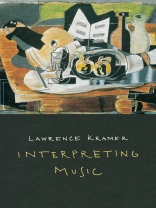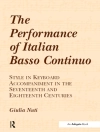Interpreting Music is a comprehensive essay on understanding musical meaning and performing music meaningfully—’interpreting music’ in both senses of the term. Synthesizing and advancing two decades of highly influential work, Lawrence Kramer fundamentally rethinks the concepts of work, score, performance, performativity, interpretation, and meaning—even the very concept of music—while breaking down conventional wisdom and received ideas. Kramer argues that music, far from being closed to interpretation, is ideally open to it, and that musical interpretation is the paradigm of interpretation in general. The book illustrates the many dimensions of interpreting music through a series of case studies drawn from the classical repertoire, but its methods and principles carry over to other repertoires just as they carry beyond music by working through music to wider philosophical and cultural questions.
Tabela de Conteúdo
Contents
List of Musical Examples
1. Hermeneutics
2. Language
3. Subjectivity
4. Meaning
5. Metaphor
6. History
7. Influence
8. Deconstruction
9. Analysis
10. Resemblance
11. Things
12. Classical
13. Modern
14. Works
15. Performance
16. Musicology
Notes
Index
Sobre o autor
Lawrence Kramer is Professor of Music and English at Fordham University. He is the author of many books, including Musical Meaning: Toward a Critical History; Opera and Modern Culture; and Why Classical Music Still Matters, all from UC Press.












